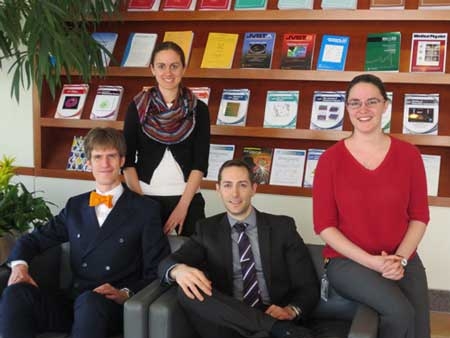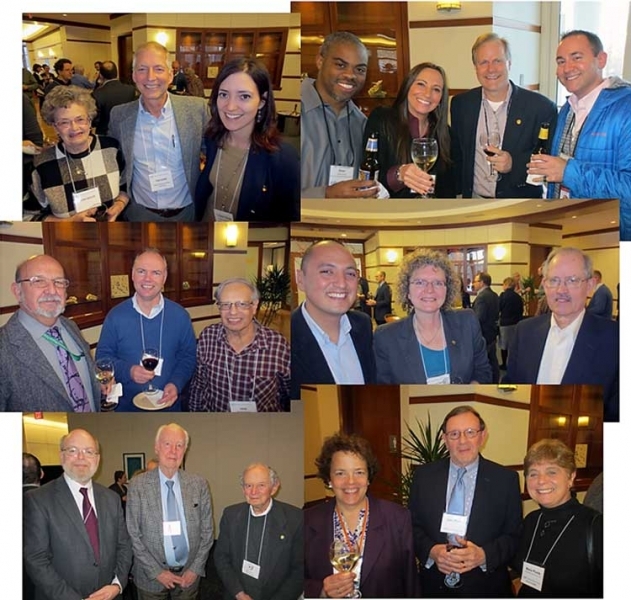Peer review is a tenet in scientific research, but it can be equally powerful when applied to programs that serve the science community. AIP provides programs, products, and services to a broad array of audiences. These include journalists, historians, and workforce administrators in addition to scientists and students. To make sure that AIP programs remain relevant, we gather input from the scientific community and these audiences through committees of advisors. Every year, committees meet to discuss programs and make sure the voice of the audiences is heard by AIP staff and management. In recent years, we have increased the interaction with these committees through email communication and conference calls to keep volunteers abreast of progress throughout the year.
Over four days at the end of February more than 60 volunteers gathered to advise AIP senior program staff, when eight of the committees met (Physics Today Advisory Committee met at the end of January). The meetings kicked off with our Advisory Committee on Physics Education (ACPE) meeting on Wednesday, February 25, collocated with the National Society of Black Physicists meeting in Baltimore, to facilitate participation in

NSBP events. The AIP Development Board, which works with AIP’s Development Office to raise funds for our history and student programs, met on Thursday at ACP. Friday was the big day, when five AIP program advisory committees convened, and we held a special plenary session for all committee members.
Board of Directors chair Lou Lanzerotti described the new board structure and provided his perspective on AIP’s revised mission: to advance, promote, and serve the physical sciences for the benefit of humanity. CEO Fred Dylla and I also addressed the volunteers, to give them a better understanding of AIP’s relationship with our Member Societies and the portfolio of AIP’s offerings. I gave a 30,000-foot review of our programs, highlighting just a few of our achievements in 2014. You can see a version of the highlights here.
The Statistical Research advisors encouraged our continued work to identify emerging trends in physical science education, including online education, given its growing presence; they also considered a potential new study on attrition of physics students. Media looked at new metrics on the effectiveness of media services in promoting journal content and recommended experimentation with Inside Science’s video formats to define a distinct and successful style. Career Network advisors saw value in the career resources available through the Physics Today Career Network in serving the physical scientist. History advisors honed in on the History Center’s teaching modules, citing their capacity to marshal historical resources in order to teach and inspire students, and expressed appreciation for the expansion of the library’s meteorology holdings in the wake of

AMS’s joining the AIP federation. The Education Committee reviewed dissemination plans for the recently released Career Pathways program materials and report, which appear to be of high value to the undergraduate physics community, and encouraged board participation in the 2016 SPS Physics Congress to raise awareness among the Member Societies of ΣΠΣ/SPS’s extensive efforts. Advisors noted that AIP would be well served by surveying the non-reading audience of Physics Today (PT), including younger members, to find out what they are looking for in a publication like PT. Government Relations considered recent actions by the Physical Sciences Education Policy Coalition, convened by AIP with participation from Member Societies, and advised on expanding the reach of FYI, including via social media, to expand readership.
The final meeting wrapped up on Saturday when the chairs of all of the advisory committees reported their recommendations to the Physics Resources Policy Committee. This committee considers all of the recommendations and prioritizes and highlights them in a report to management that will also be shared with the Board of Directors.
We greatly appreciate the time and effort of our volunteers. Their hard work and insightful recommendations are critical to keeping AIP programs well grounded.

